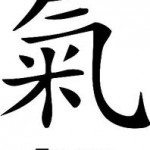Taiji & Qigong

Why Study Taiji and Qigong?
Qigong (Chee Kung) comes from acupuncture and has been practiced for thousands of years. In the first century, it was expanded to include martial and spiritual forms for Qi development. It consists of coordinated mind, breathing and body motions - often mimicking the motions of animals.
Taiji is an internal martial art that relies on the principals of yin and yang, along with the support of the body’s Qi, for its effectiveness. Today, millions of people throughout the world practice the Taiji for health, fun and fitness.
Enhancing Health and Well-being
Qigong and Taiji are an excellent forms of low impact exercise. They provides all the benefits we currently associate with gentle exercise.
- Trains the mind to higher levels of concentration and focus.
- Improves the body’s metabolism and builds up an abundant level of Qi
- Loosens and exercises the joints to allow for smooth Qi flow
- Strengthens the tendons and ligaments - as opposed to the major muscles focused on in Western exercise.
- Builds root, center and balance
- Trains the practitioner to lead the Qi through the body and use the body's Qi for energy purposes
- Develops integrated motion, following the body’s natural energy patterns
- Improves the Qi flow to the organs, helping to maintain their overall health.
Read Reuter's recent article on Taiji: "Tai Chi: getting there more slowly, but intact."
Documented Health Benefits of Taiji
A recent study published in the New England Journal of Medicine shows that Taiji improves balance and movement control for people with Parkinsons. Past studies have shown that tai chi reduces falls and depression among the elderly, and lessens pain for patients with arthritis and fibromyalgia.
Read the story in the New York Times
Listen to a segment on NPR
Qi is frequently translated as "lifeforce" or "energy flow," and is comparable to the Hindu yogic science of prana, meaning "life force" in Sanskrit. Qi is the central underlying principle in traditional Chinese medicine, as prana is in ayurveda.
Why Practice Qigong?
Find out why the practice of Qigong is growing by leaps and bounds throughout the United States in this excellent article published by the New York Times.

Sorry, the comment form is closed at this time.